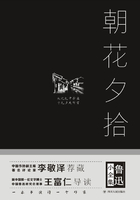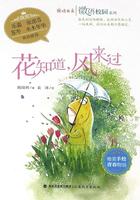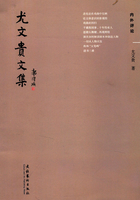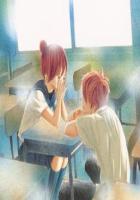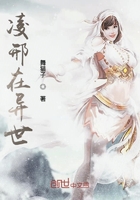Meat-eating:A Case of Humanity’s Inhumanity
Meat-eating:A Moral Issue
A pivotal concern of Vonnegut's philosophy of humanism is the(re)defnition of humanity。 A descendant in the strain of Swift, Twain, and H。G。Wells, Vonnegut is utterly skeptical of the Enlightenment concept of humanity, which celebrates man's distinction from and superiority to the animal world。For him, inhumanity seems a more constant state in the contemporary human existence。
The orthodox Enlightenment paradigm of the“human”boasts of such modes of behavior:civil, advanced, just, compassionate, and decorous;whereas anything negative is defined as“inhuman”:brutal, primitive, ruthless, cruel, and excessive(P。 Armstrong 23)。As in the definition of humanity,“inhumanity”,too, relies on the referential role of the animal—“inhumanity”refers to any form of behavior in a human being that is more brutal and savage than that of the predatory animals。There needs be a distinction between the two words“inhuman”and“non-human”。While“non-human”denotes anything that is not human,“inhuman”,on the contrary, pertains to humans only。According to John Simons, only humans can be“inhuman”because inhumanity occupies, as in Swift's world,“aparticularly savage moral ground by taking on rational thought processes which cannot be shared by the non-rational animal。”Therefore, the power of reason which conventionally denotes humanity as being superior to the beast becomes“a marker of this inhumanity”(Simons 2002:126)。It thus completes a thrice-fold category generated by the human-animal distinction:humanity, animality, and inhumanity。
Philip Armstrong follows this understanding in his analysis of the meaning of animals in modern fiction。 He points out that in orthodox Enlightenment humanism“inhumanity”is always associated with non-European cultures or the pre-modern phase that humans occupy before they are trained out of the base state of living。“This‘atavistic'inhumanity provides, along with animality, a negative term against which a modern form of humanity can be defined”(25)。However, Armstrong observes, quite a few writers of the 18th century, Jonathan Swift in particular, have made critical investigations into Enlightenment humanism and uncovered an alternative, instrumentalist mode of inhumanity。“While this second form of moral degradation is also considered worse than animalistic,”Armstrong notes,“it is presented not as a primitive phenomenon but as a disposition arising from the very kinds of rationalistic paradigms and experimental technologies privileged by modernity”(25)。In other words, the advanced modernity renders humans more“inhuman”。For Swift and some other writers, the Enlightenment principles of rationality and humaneness are hypocrisies maintained only by systematic denial of the relationship between the atavistic or primitive manifestations of inhumanity and its civilized, modern expressions—the latter exemplified by the colonial systems designed to exploit and control human and non-human populations alike。
Vonnegut is obviously in the Swiftian tradition。 Although the imperialist modernity that Swift attacks seems to have died away, Vonnegut, two hundred years later, sees similar forms of brutality andsavagery that result from an excessive faith in rationality and operate in the guise of civilization。Commenting on the wasteful American space project in an essay of the 1970s, Vonnegut makes a comparison of humans with the apes in a Cinerama motion picture 2001:“I remember their bloodshot eyes and their fears at night, how they learned to use tools to smash in each other's skulls。And I suppose we're not much past that on the scale of evolution, even though we now have Cinerama”(WFG 84,emphasis added)。However advanced technology humans have invented, they have not passed the stage of brutality, or, they are of brutality that is even worse, for they have“learned to use tools”。In many of his novels, Vonnegut demonstrates the human propensity for the“detached, reasoned, calculated ruthlessness”,just as Swift does in the portrayal of the Houyhnhnms。
One example of such portrayal is the recurrent motif of the killing of animals for food。 In Breakfast of Champions, Hocus Pocus, and Galapagos, in a manner of deion that is much at variance with his customary laconic style, Vonnegut depicts the human killing of chickens, pigs, dogs, cattle, and all kinds of animals on the Galapagos Islands in great detail, inviting his readers to notice the brutality and barbarity demonstrated in the act and rethink the meaning of humanity。
The moral standing in the practice of meat eating is one of the oldest controversies in the human history。 While most people feel little discomfort with it, some believe it is wrong to eat the flesh of fellow creatures。Plutarch, for example, argues that it is both unnatural and immoral to eat animal meat。The human physiology such as the softness of the tongue and the slowness of the stomach in digestion are evidences that humans are not constituted for meat consumption。As for morality, he believes humans have a kinship with other animals and it is morally unacceptable to eatthem。“With what soul or reason,”he inquires,the first man with his mouth touched slaughter, and reached to his lips the fesh of a dead animal, and having set before people courses of ghastly corpses and ghosts, could give those parts the names of meat and victuals, that but a little before lowed, cried, moved, and saw;how his sight could endure the blood of slaughtered, fayed, and mangled bodies;how his smell could bear their scent;and how the very nastiness happened not to offend the taste, while it chewed the sores of others, and participated of the saps and juices of deadly wounds。(154-5)
Plutarch also articulates the connection between the victimization of animals and human social problems, maintaining that the desire of slaughter, initially experimented and exercised in animals, will eventually lead to“the slaughter of man, to bloodshed and wars”(157)。
Plutarch has a large following in the later centuries, including Montaigne, Kant, Rousseau, and Schopenhauer, to name just a few, although not all of them are strict vegetarians。 Contemporary animal ethicists extend on Plutarch's argument。They believe that what people eat and how they eat are ethical matters。It matters not only in that the mentality of cruelty fostered in the treatment of animals will viciously affect one's behavior to fellow humans。It is a grave ethical matter also because of the sufferings of the animals themselves。Peter Singer, Jim Mason, David DeGrazia, and many others have all expounded on the issue。They make investigations into the common practices on farm factories and present abhorring accounts of the deplorable living conditions of chickens, pigs, sheep, calves, ducks, and turkeys on the animal farm。These animals are crowded in barren and flthy environment, terribly restricted in activity within extremely limited space, having part of their beak or horn or tail cut off, castrated if it is a male quadruple, to prevent aggressive behavioramong themselves。
All of the mutilation is done without anesthesia。The young is always taken away from the mother immediately after birth, fed on milk artifcially controlled in its additives to guarantee the production of desired elements。All animals are maintained on drug-laced, unnatural diets。The natural process of birth, growth, and reproduction becomes cruelly manipulated and is conducted at great costs。As Jim Mason puts it,The animal factory is a classic case of technology run amok:it requires high inputs of capital and energy to carry out a ******, natural process;it creates a costly chain of problems and risks;and it does not, in fact, produce the results claimed by its proponents。 Moreover, the animal factory pulls our society one long, dark step backward from the desirable goal of a sane, ethical relationship with the natural world and our fellow inhabitants。(104)
David Nibert, on the other hand, explores the political and economic connection between the oppression on the animal farm and the oppression in human society。 He finds that the promotion of meat consumption in developed countries has led to the deprivation of poor people in the Third World countries, such as those in Central America。The elite class of these countries use much of the land to raise cattle, livestock feed, and other“cash crops”that are sold to multinational corporations, hence the Third World masses have no land to produce food for themselves, and they fnd it extremely diffcult to afford food from countries like the United States。Therefore, as Nibert argues,“Modern agribusinesses produce food for everyone who can afford it, not for everyone who needs it”(184)。The core of the oppression of both humans and animals is monetary gain, which sits at the heart of the capitalist political economic system。
There is little indication that Kurt Vonnegut is vegetarian, but he is defnitely concerned about the cruelty exercised in the killing of animals for food。 In Breakfast of Champions, Hocus Pocus, and Galapagos, thereare explicit and detailed deions of such cruelty。Furthermore, as I mentioned earlier, the tone of the narrator in these novels develops from ridicule to indignation。A sincere concern is gaining in primacy in the progress of his writing for the slaughtered animals。Thematically, these deions contribute in subtle but potent ways to the major themes of humanity。

